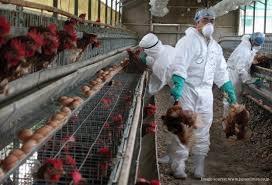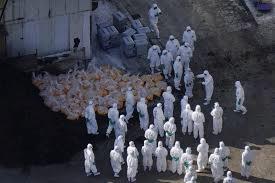 State broadcaster NHK reported that 16 out of 26 prefectures in the nation have reported avian influenza. The current epornitic has resulted in culling of 17 million hens, representing 12.8 percent of the pre-HPAI complement of 132 million egg-producing birds. This has resulted in logistic problems relating to disposal of culled flocks by burial. Controlling HPAI by traditional “stamping out” and quarantine is ineffective given the close proximity of numerous small farms and constant shedding of virus by migratory and resident birds. It is inevitable that Japan will apply vaccination, currently under consideration, using commercially available products to suppress the infection.
State broadcaster NHK reported that 16 out of 26 prefectures in the nation have reported avian influenza. The current epornitic has resulted in culling of 17 million hens, representing 12.8 percent of the pre-HPAI complement of 132 million egg-producing birds. This has resulted in logistic problems relating to disposal of culled flocks by burial. Controlling HPAI by traditional “stamping out” and quarantine is ineffective given the close proximity of numerous small farms and constant shedding of virus by migratory and resident birds. It is inevitable that Japan will apply vaccination, currently under consideration, using commercially available products to suppress the infection.
Imbalance in the availability of domestic eggs has increased shelf prices to decade-highs approaching $2.00 per dozen. The shortage of eggs and broiler meat will require higher levels of imports, especially egg products to supply demand. The question is to whether the U.S. will be sufficiently competitive in pricing to increase exports even with elimination of tariffs.
 The Ministry of Agriculture, Forestry and Fisheries in Japan has now agreed to conform to the World Organization of Animal Health standards relating to HPAI trade restrictions. The Ministry has reduced the restriction period from 90 days to 28 days post-cleaning and disinfection after an outbreak. This is justified on the demonstrated freedom from avian influenza virus after effective decontamination but is also motivated by the need to establish available supply from the U.S. and the E.U.
The Ministry of Agriculture, Forestry and Fisheries in Japan has now agreed to conform to the World Organization of Animal Health standards relating to HPAI trade restrictions. The Ministry has reduced the restriction period from 90 days to 28 days post-cleaning and disinfection after an outbreak. This is justified on the demonstrated freedom from avian influenza virus after effective decontamination but is also motivated by the need to establish available supply from the U.S. and the E.U.
In 2022, exports of all poultry products in Japan amounted to $75 million of which $40 million was represented by egg products. Supply of egg products into Japan during the first two months of 2023 from the U.S. increased by 4 percent to 1,375 metric tons valued at $7.0 million, with a unit price of $5,091 per metric ton, 10.5 percent higher than for the first two months of 2022.